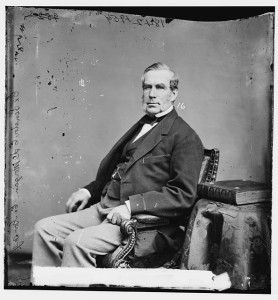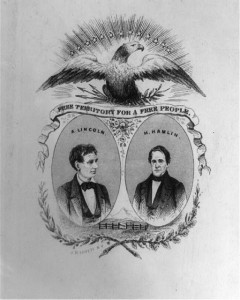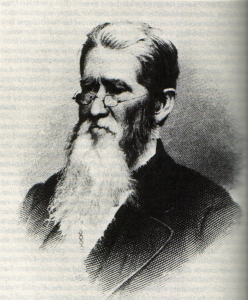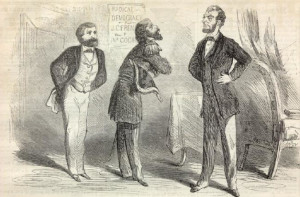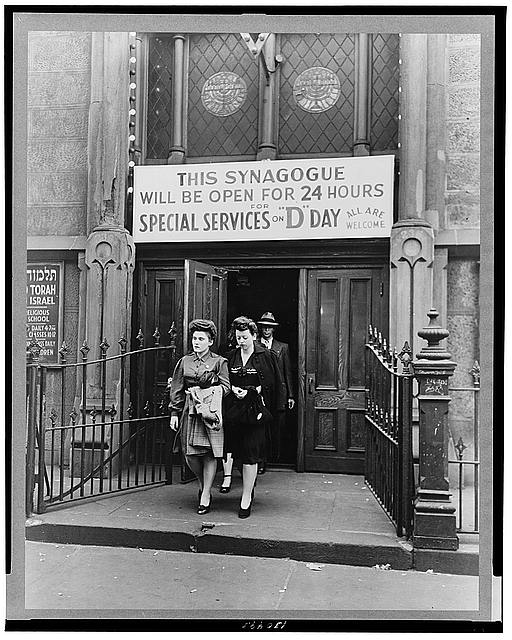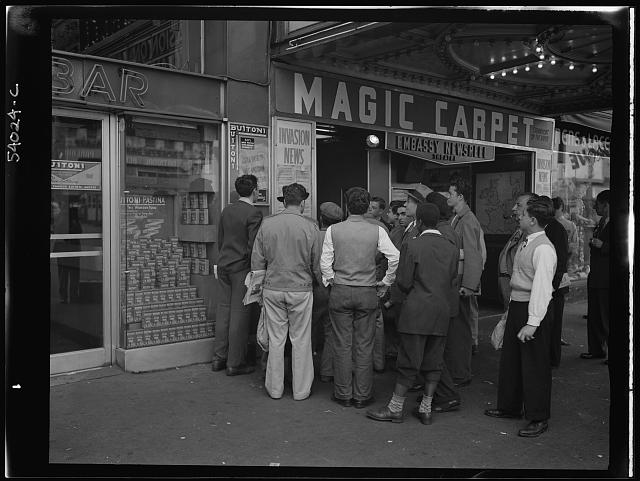Our SENECA correspondent from New York’s 1st Veteran Cavalry sure was happy to be able to report some Union success in the Shenandoah Valley after the defeat at New Market. According to SENECA, a diversionary action by the 1st Veterans on June 4th let General David Hunter slip the main part of his Army of the Shenandoah around the strong Confederate position at Mt. Crawford. The main battle was fought the next day.
From a Seneca County, New York newspaper in 1864:
From the First Veteran Cavalry.
STAUNTON, VA., June 9th, 1864.
![Maj. Gen. Hunter ([between 1860 and 1863]; LOC: LC-DIG-ppmsca-32331)](https://www.bluegrayreview.com/wp-content/uploads/2014/06/32331r-186x300.jpg)
“Black Dave” Hunter – new Union boss in the Valley
FRIEND STOWELL: – Again have we met the enemy and this time have won a glorious victory. Shortly after my last from Cedar Creek, Gen. Sigel was relieved by Gen. Hunter, who at once made preparations for another advance up the Valley. – All baggage, tents, &c. were sent to Martinsburg, all sutlers and citizens banished from the army, and on the 26th of May we moved up the Shenandoah and again occupied the town of Woodstock. On the 29th we camped on the battle field in front of New Market, from which we had been driven just two weeks previous, and next day the “Veterans” entered the town [,] which we held. Lieut. Col. Platner commanding the post. Here we seized large quantities of tobacco and cotton. The cotton was burned and the tobacco distributed among the troops.
While lying at New Market we received the melancholy intelligence of the death of Capt. ROBERT H. BRETT, of Co. K, who fell, bravely fighting for his country at New Town, Va., on Sunday evening may 29th. Capt. Brett was a brave man and a good officer, and his loss is severely felt and deeply regretted by the whole regiment, and especially by the officers and men of his own Company, who have not only lost a brave commander put [sic] a kind friend and brother. But he has met a soldier’s death. He has done his duty well – God give him his reward.
On the 2d of June we arrived at Harrisonburg, a place of some importance, and after a smart skirmish of two hours, drove Gen. Imboden through the town, which we held. The enemy fell back to a very strong position, which they fortified extensively, making it almost impregnable. On Saturday, the 4th inst., Col. Platner moved his regiment about seven miles to the right and attacked the enemy on the left flank, then drawing his entire attention, while the whole of our army, trains and all, passed by on his right flank taking the road to Port Republic, after which we withdrew from our position on his left and rejoined the army at Port Republic, much to the disgust of Mr. Imboden, who was completely fooled by this Yankee trick, and obliged to evacuate his stronghold.
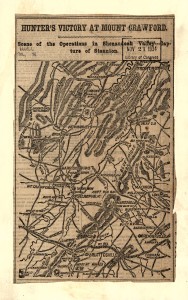
Woodstock to Staunton
On Sunday, the 5th of June, we again advanced and had proceeded but a short distance when we were furiously attacked by Imboden’s cavalry, who were soon put to flight by our “Cavaliers.” Imboden fell back to Mt. Hope, where his men joined by Gen. Jones with a large force of Infantry and Artillery sent up from Richmond or vicinity. We steadily advanced, and about eight o’clock on that beautiful Sunday morning the artillery opened upon us and the
BATTLE OF MT. HOPE OR PIEDMONT
commenced. Our Batteries were immediately brought up and soon the fireing [sic] was terrible. After a short cannonading of two hours, our Infantry moved forward in three splendid lines of battle against the enemy’s left, which was strongly posted in a long strip of woods, upon a gentle rise of ground. The contest here was terrible – again and again our picket line advanced, and as often it was forced back, until at last, with a shout that sounded far above the roar of Artillery, all the lines advanced and carried the position. For a while there was a lull in the storm of battle, but soon the enemy were seen massing all their forces for a grand charge upon our right, to regain the position they had lost. Our cavalry was immediately dismounted and thrown into the woods with the Infantry to hold the ground, and right well they held it. Line after line of the enemy came rushing in upon us with shout and cries, and dashed themselves upon our troops like waves against a rock. But the Stars and Stripes were defended by strong arms and brave hearts that day, and the rebels were driven back in disorder. No sooner did this occur than the order was given to charge along our whole line, and away we went, Cavalry, Infantry and all. With a loud cheer the Infantry charged down upon their front, and with flashing sabres and shouts of victory the Cavalry came crushing down upon the flank. The battle was finished. the victory was complete. – Thousands threw down their arms and sought for safety in the mountains. Hundreds of them were captured, while the ground far away, was strewn with dead and dying as we dashed on after the flying foe.
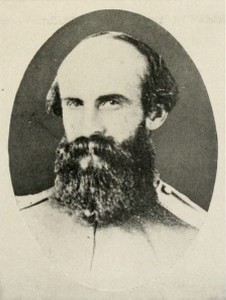
William E. “Grumble” Jones as colonel in 1862
Col. Platner was ordered to pursue the enemy and pick up stragglers. Placing himself at the head of his regiment, and giving the order to charge, away we went as fast as our horses [could carry us through] the town of Mt. Hope and the forests beyond, dashing right upon the enemy’s rear guard and driving it in upon what was left of the rebel army. It was in this gallant charge that we lost most severely, for when we rushed upon the rear guards, they received us with a perfect storm of bullets, before they broke and ran.
This closed the battle, and we camped for the night upon the field which had been the scene of one of the hardest fought battles of Shenandoah, and the greatest victory ever won in the Valley. Our loss in killed and wounded is not over five hundred (500) whilst that of the enemy is nearly one thousand, besides twelve hundred prisoners, including sixty commissioned officers. Gen. Jones who commanded the rebel forces was left dead upon the field, together with many other General and Field officers.
On the 6th we marched upon Staunton, which we occupied without opposition and which we now hold.
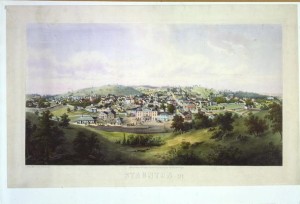
the “beautiful town” c.1857
Staunton is a beautiful town containing many very fine public buildings. Some of them are State Institutions and really magnificent. This is the first time the Union troops have been in Staunton since the war commenced, and the citizens beheld us enter the town with no little anxiety, as they had been told horrible tales concerning the barbarity of the Northern hordes. But they are very happily disappointed in finding we are not quite savage, and everything passes off quite smoothly between us.
Yesterday Gens. Averill and Crooks with a large force of cavalry and Infantry joined us from the Kanawha Valley, and we now have quite a respectable army with us, sufficient to meet any force that Lee can conveniently spare to send against us.
We have been hard at work for the past two days, destroying the Richmond Railroad and have pretty thoroughly demolished it for several miles in either direction.
I enclose an official list of casualties in our regiment from the past two weeks from which you will perceive that we have had some pretty severe work, and although Co. K has not lost as many as some others, yet I assure you that none have done better than the boys from SENECA.
Another clipping reported the list of casualties of the 1st NY Veterans at New Market and Mt. Hope. Individuals were listed by company, and then a RECAPITUALATION tallied up the losses by officers and men. One officer was killed and two wounded. There were 22 men killed. 42 wounded, and 27 missing.
The Battle of Piedmont would have been a more complete victory for the Union army if it wasn’t for a successful rear guard action that did indeed stymie the 1st Veterans:
On the Staunton (East) Road, the 1st New York Veteran Cavalry launched a vigorous pursuit of the beaten Confederates. However, another section of McClanahan’s battery and elements of Vaughn’s brigade not sent to the left hastily deployed along the road between the villages of Piedmont and New Hope. When the New Yorkers chased up the road after the fleeing Southerners, this Confederate rear guard opened fire devastating the Union cavalry and dampening their enthusiasm for any further pursuit. Although at least 1,500 Confederates had been lost, the rear guard action at New Hope allowed the remnants of the army to escape further damage.
![Outer line of Confederate fortifications, in front of Petersburg, Va. captured by 18th Army Corps, June 15, 1864 (1864 June [printed between 1880 and 1889]; LOC: LC-DIG-ppmsca-32439)](https://www.bluegrayreview.com/wp-content/uploads/2014/06/32439r.jpg)

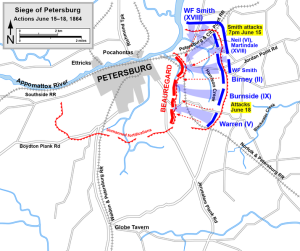
![The struggle of Petersburg. The lines of rebel intrenchments carried by our troops. [June 15-17,1864]. (LOC: http://www.loc.gov/item/99448482/)](https://www.bluegrayreview.com/wp-content/uploads/2014/06/Petersburg-138x300.jpg)
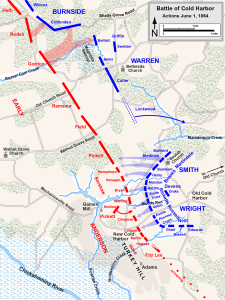

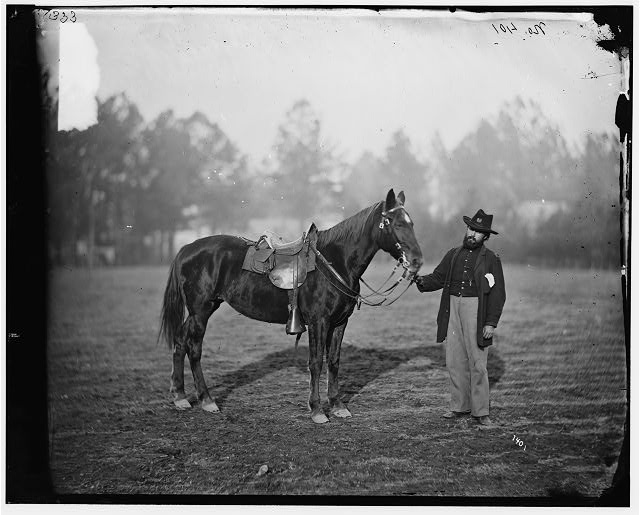
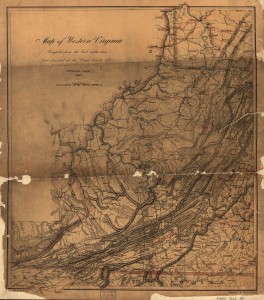
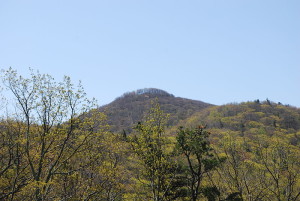

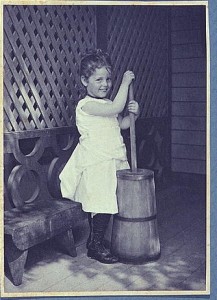
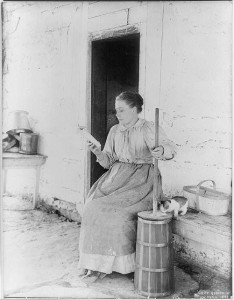
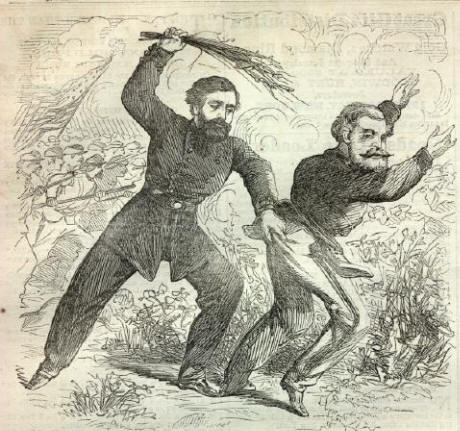
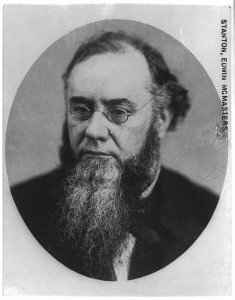
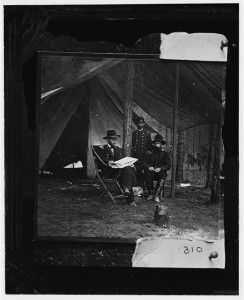
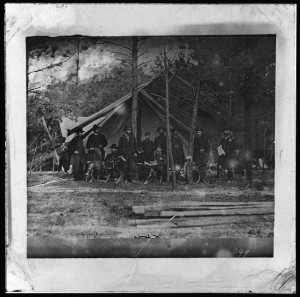
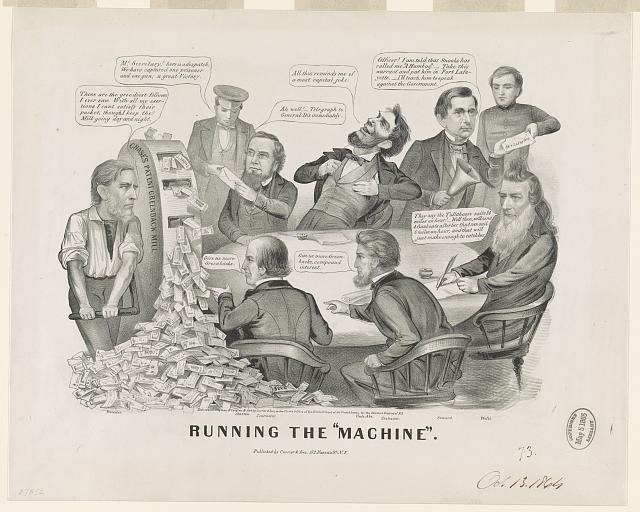

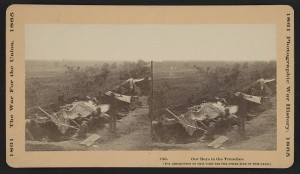
![Maj. Gen. Hunter ([between 1860 and 1863]; LOC: LC-DIG-ppmsca-32331)](https://www.bluegrayreview.com/wp-content/uploads/2014/06/32331r-186x300.jpg)



